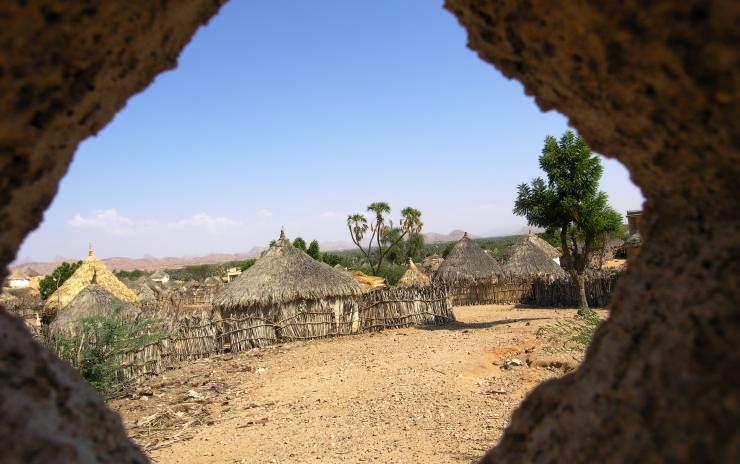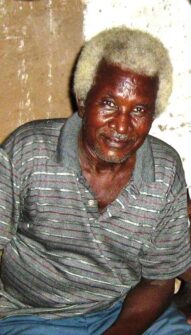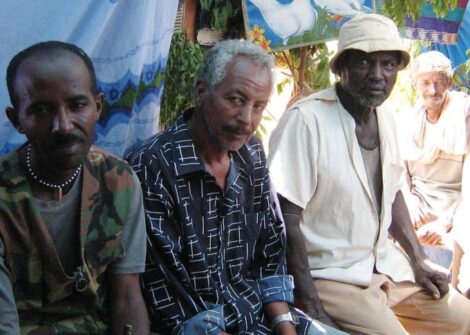Religious Belief among the Kunama.

When the Kunama are asked: ‘Ayshila mekobino?’, they reply: ‘Ánnala’la makobinke’ (we believe in God). The word ‘Anna’ (God) comes from the word ‘Annena’ (in Kunama it means creator).
The Kunama believe in Anna (God) who created the heavens and the earth. For them, God lives far away, up there in the universe, and no one can reach him and see him; he is invisible. The Kunama say: Annà na inti? (who sees God?), Na itache? (and who can know him?). Annà it ache, they still say; that is, God is God.
They are very religious people, and their own language testifies to this. For example, in times of trouble, they say: Anna koske (God is present), Anna konala (in God’s hands), Anna kondorabu (by God’s grace or power), Anna headabbu (God willing), etc.
In expressing their gratitude, they say: Annam eso (God bless you), Anna gola (God is great/ good). When they pronounce curses, they say: Anna ebale (may God destroy you),

The Kunama believe in Anna (God) who created the heavens and the earth.
Anna eyafasu (may God kill you), Anna laga (God earth/universe).
When they pray, they call upon their ancestors to intercede with God on their behalf. Their religion is based on orality; it is at its basic level, but they do not bow or kneel to any image or statue, and they worship only one God.
For the Kunama, Anna also has another characteristic: he is not interested in the world in a specific way. Once the creation is completed, he leaves the inhabitants to live alone and build their existence as they see fit; they will be helped or harmed by the spirits of good or evil.
Anna, however, is not so bad as to completely forget about his creatures. Every 14 or 15 years he leaves his seat and goes down to earth to visit people, and it is then that the Kunama gather to solemnly celebrate the great event with dances, songs and aifa (drinking), for days on end.
This celebration of the Tuka (manifestation of Anna) is not something that happens suddenly but is announced many months in advance. Neither does distance prevent a relationship of trust. The Kunama people trust in Anna, they truly believe in the Creator, so much so that in the difficult moments of life, one expression recurs frequently: Anna coske, that is a God who sees and provides.
Especially in the elderly, there is no lack of recourse to Anna through prayer, together with the invocation of Adum and Hawa (Adam and Eve, the progenitors of all the tribes) and of the ancestors.

The Kunama are very religious people.
Prayer does not consist of already prepared formulas, but it is something spontaneous, simple, confident, of few words: “may the wind (Anna‘s strength) take away all evils from you; may your health, your life be as robust as Mount Fodé (a sacred mountain); may Anna give us abundant rain and a luxuriant harvest”. These are the essential points of the Kunama prayer. And when a Kunama swears by Anna, his word can be fully trusted. He certainly is not lying.
The Kunama venerate their ancestors and have a special reverence for the elders of the tribe. This respect for the elders allows the tribe to make important decisions, called ‘democratic choices’, which always involve two elders. The Kunama work together, designating certain months for special ‘events’. September, for example, is harvest time. January is the month when houses are repaired. Everything is done as a community, each one helping the other. The whole village also participates in funerals, as it is their custom to say farewell in groups, even if the children cannot attend. (A.F.M.)



